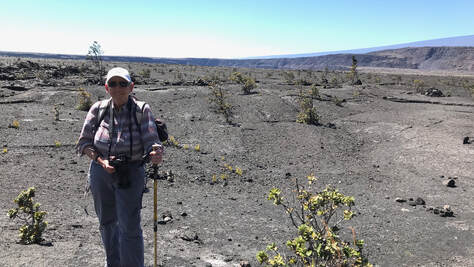 Although born in Illinois, Dorothy “Tepp” Tepper’s family moved to Silver Spring, Maryland when she was four years old. She graduated from the University of Maryland College Park with a B. S. degree in Earth Sciences education and intended to teach junior and senior high school students. But during her student-teaching experience, she found her passion for earth sciences was not matched by her students and decided not to become a teacher. After college, she took a year off in Bar Harbor, Maine, to figure out what she wanted to do. She became fascinated with the geology of the area, so she got her M. S. in Geological Sciences from the University of Maine and went to work for the U.S. Geological Survey. Her career at USGS took her to many amazing geological sites throughout the United States including the Grand Canyon, the Yucca Mountain proposed nuclear waste repository in Nevada, and the Finger Lakes region in upstate New York. She has lived in Virginia for the last 20 years and continues to be fascinated by the geology of our state. When and how did you become interested in nature and the natural world? Tepp’s parents were from New York City and weren’t outdoors people except for sailing. But she, her sister and brother enjoyed being outside as much as possible. When they were in elementary school, they used to use spoons and trowels to dig holes in their yard. Their goal was to dig their way to China. Her father had to redirect them once when they were digging too close to the house foundation and had them fill that hole back up. “We really thought we would be able to dig our way right through the Earth to China,” Tepp said. She was active in the Girl Scouts from Brownies through Seniors and looked forward every year to two weeks or more at Girl Scout resident summer camp. Tepp’s career continued her involvement in and appreciation of the natural world and led her to become a Master Naturalist several years after she retired. Describe what you do on your property to support a healthy ecosystem. Tepp lives on 2.3 acres in Amissville. Her property is half lawn and half woods. She has installed a perennial garden that contains native plants for pollinators. “But it’s more what I don’t do that is important,” she explained. “I don’t rake the leaves off the lawn but allow them to decompose and enrich the soil. I leave the dead wood that falls in the wooded area on my property so it can be used by animals and insects – both for food and for shelter. I don’t use pesticides or herbicides.” Tepp has one of the few gravel driveways in her community because it allows the rain to percolate into the soil and not run off. She explained that her actions are not lazy but purposeful and what she sees as the better way to care for and enjoy her property. What is the most amazing thing you have experienced in nature? Tepp was challenged to choose one (so she chose two) from the many adventures she has had. She is an accomplished amateur photographer and had her own darkroom when she was in high school. Her photograph “Cardinal Family Feeding” won the 2018 VMN Statewide Photography Contest in the fauna category.
Again with her friends, she went to Alaska for a week in August to photograph grizzlies fishing in a salmon stream in Hyder within Tongass National Forest. “We were on a viewing platform on a hillside – not enclosed and less than about 100 feet away from grizzlies catching salmon.” She noted that “while the bears could have easily reached us, they were totally focused on catching and eating as many salmon as they could.” She explained that the bears in Alaska experience a complete hibernation, unlike many bears in the continental U.S. “Alaskan grizzles sleep for months and never leave their dens, which are often snow caves, she explained. They need to build up enormous fat reserves that will last them until the spring thaw.” When asked why she risked being so close to such powerful wild animals, Tepp said she tries to live by a quote of Eleanor Roosevelt’s: “Do one thing every day that scares you.” What ORMN approved projects have you enjoyed the most?
Tepp has participated for several years on the Butterfly Count sponsored by the North American Butterfly Association. She once heard butterflies described as “flying flowers” an image that captures why these insects are so wonderful to watch and energizes her to help collect data to safeguard their continued presence in the natural world. Right after graduating from the Basic Training Class 8 in 2017, Tepp joined the Basic Training Committee and has been a member ever since. She feels this is an area where she can really give back to the Old Rag Master Naturalist chapter. She became one of the class presenters on geology and this year worked ona team with Bonnie Beers, Kathleen Aucoin and Alex Bueno to put together a virtual self-guided geology field trip to Shenandoah National Park for Class X. “Working with these three members was one of the best team experiences of my life,” she said. “Each person on the team brought their unique skills and knowledge to come up with a way to give Class X a genuine field trip while upholding the restrictions of the pandemic.” She is working with a Shenandoah National Park Association representative- to try and make this field trip experience available to everyone in ORMN. In July Tepp will begin her third year as the ORMN Secretary and values the opportunity this position gives her to know about a lot of things going on within the chapter. She looks forward to each graduating class as a source of “new blood and fresh ideas” that will keep the ORMN chapter active and responsive to the needs of our community and the natural world around us. She looks forward to Class X graduates becoming active leaders as they participate on approved projects and volunteer to serve in the many areas of the chapter that will benefit from each person’s unique skills and experience. Interviewed by Charlene Uhl, May 2021 Photo credits: Tepp hiking across a crater in Kilauea Volcano, Hawaii, courtesy of Zoe Sollenberger Cardinal Feeding Family courtesy of Tepp Tepper Giraffes crossing a valley in Tanzania courtesy of Tepp Tepper Grizzly going after salmon in Fish Creek, Alaska courtesy of Tepp 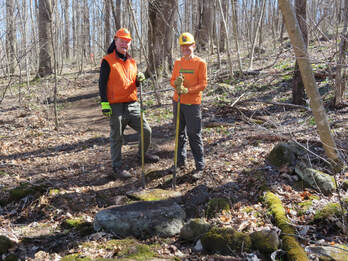 Barry Buschow was born in North Carolina where his father was stationed at the Camp Lejeune Marine Corps Base. His family moved to Falls Church, Virginia when it was a small hamlet – not the urban center that it is today. He loved to play in the woods and streams near his home, often bringing salamanders, frogs, and turtles back where he created habitats for them in large tubs. He would always take them back to their natural habitat at the end of the season. He once found a 28-½ inch long bullfrog and that landed him on the front page of the local newspaper North Virginia Sun, which is no longer published. Barry’s family could not afford to send him to college so he attended a computer school, and then worked the graveyard shift at Goddard Space Center while attending the North Virginia Community College during the day. “I can remember never feeling like I got enough sleep,” Barry recalled. Exhibiting his tenacity and commitment to the goal of getting a college degree, he was able to save enough money to transfer to Virginia Tech in his sophomore year. Barry was initially a biology major but was convinced to change to business as a more “job friendly” major. He played on VA Tech’s baseball team and remains active in its Alumni Chapter to this day. After graduating he worked for a contract engineering company for 31 years. When his wife, an artist, found the home of their dreams in Culpeper, they both retired and moved to an established neighborhood of 20 homes with large lots and many mature trees throughout the community. When and how did you become interested in nature and the natural world? As noted earlier, Barry was always exploring the outdoors. His second love was baseball. “When I was nine years old I was active in Little League baseball. I would carry my mitt with me everywhere” Barry said. He would constantly throw things – balls, rocks, anything that he could hold in his hand - to improve his throwing skills. “One day I was walking around in my backyard and I saw a robin on a fence. I picked up a piece of chuck mulch and threw it at him – and it killed the bird.” Barry said that memory still disturbs him and is part of the reason he has such a strong motivation to take care of nature. Shortly after moving to their current home, Barry saw an ad for the ORMN Basic Training Class and immediately applied. He completed his Master Naturalist training in Class 8 and has been active in the chapter ever since. “The Basic Training Class taught me how much I don’t know,” Barry said with a smile, “but it also taught me how to find the answers.” Describe what you do on your property to support a healthy ecosystem. Barry explained that the first three years on their property were spent in getting a better understanding of invasive plants and effective ways to remove them. Many of their invasives had to be cleared by hand which was very time-consuming. This included taking out 30 autumn olives and a number of Bradford pears. Last summer they established a ¼ acre pollinator garden which is a major source of nectar for his wife’s five beehives. They also had to install a bear fence to protect the hives. Barry is a big fan of bluebirds and maintains five bluebird boxes on his property as well as monitoring two trails for the chapter. Since bluebirds usually don’t use all the boxes each year, he has seen tree swallows and chickadees nest in the boxes as well. Last summer a large oak tree was downed by lightning. Barry had to remove the tree and stump and used the space to create a Milkweed Garden. What is the most amazing thing you have experienced in nature? Barry immediately said that 28-½ inch bullfrog took the prize – then continued by saying “Now every day is amazing. This morning when I was monitoring my bluebird houses, I saw that a bluebird laid eggs in a moss chickadee nest. The bluebird did not wait to build a straw nest over it.” He particularly enjoys the different birds that visit his property, including owls and hummingbirds. He noted that the hummers came a little early this year and he had to find and fill his feeders right away. What ORMN approved projects have you enjoy the most? Barry is active in supporting a number of bluebird trails, including the ones at Hoover Ridge County Park in Madison and the Culpeper Sports Complex. He is also a monitor for a portion of the Appalachian Trail in Shenandoah National Park as well as a member of the ORMN South River Falls Trail monitoring team. Barry also volunteers for Friends of the Rappahannock projects, including riparian buffer restoration and stream monitoring. “There are so many interesting opportunities among ORMN-approved projects and just not enough time to volunteer for all of them,” he said with regret. As the President of ORMN, what would you say were its greatest achievements in your first year as president – and what are the challenges ahead? “I have been so proud at how many members have risen to the challenges of continuing our activities during the COVID-19 pandemic,” he said. “Members have been creative, patient, resourceful, committed and persistent in carrying on – be it the administrative duties, our Basic Training Class, or finding new ways to support our chapter’s projects.” He made specific note of the scholarships that were established by the ORMN Board in his first year of office: one for individuals to participate in the Basic Training; a second for members to attend VMN seminars and annual meetings; and a potential third scholarship for high school students who are interested in conservation. He also praised the efforts of Dera Cooper, Alex Bueno and Carolyn Smith in transitioning members to the new VMN data system. Of ORMN’s 95 members, 56 members - almost 60% - have signed on so far. Barry feels the main challenge of the chapter going forward is keeping members involved in chapter activities, particularly members from the some of the earlier classes. “We need to listen to the interests and needs of all our members – what they are interested in, want to learn and where they want to volunteer,” he explained. Barry continues to support the chapter’s communication and continuing education efforts as some of the most viable ways to reach out to all members. “Every single person who becomes a certified Master Naturalist contributes to the relevance of our chapter. We need to get them all involved in promoting good conservation practices on their own property and throughout Virginia.” Interviewed by Charlene Uhl, April 2021 |
AuthorWrite something about yourself. No need to be fancy, just an overview. Archives
December 2023
Categories
All
|
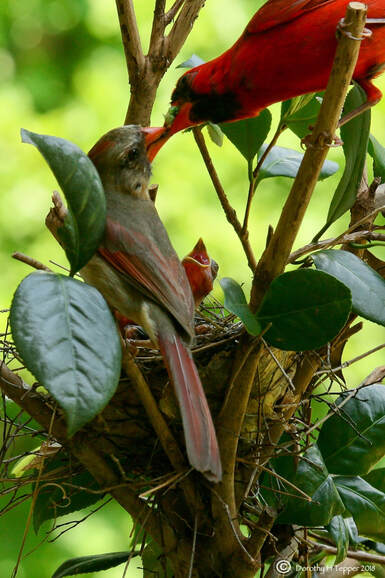
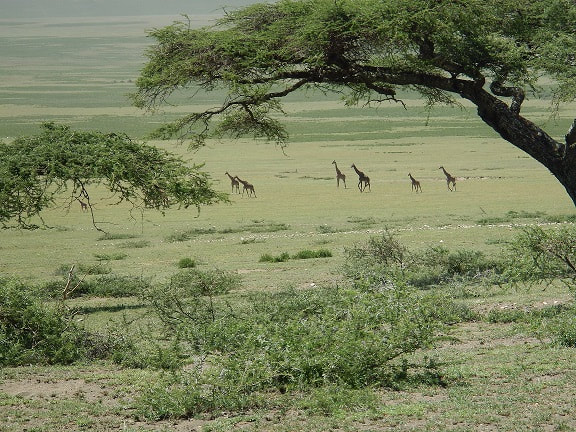
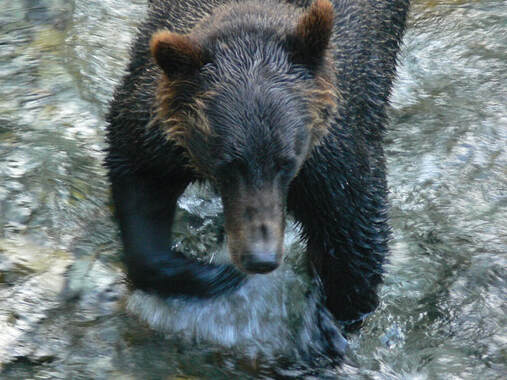
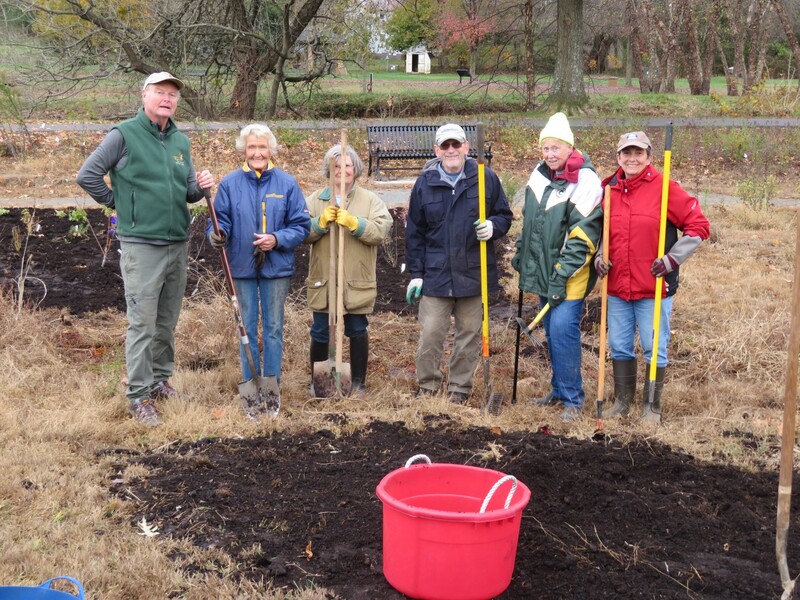
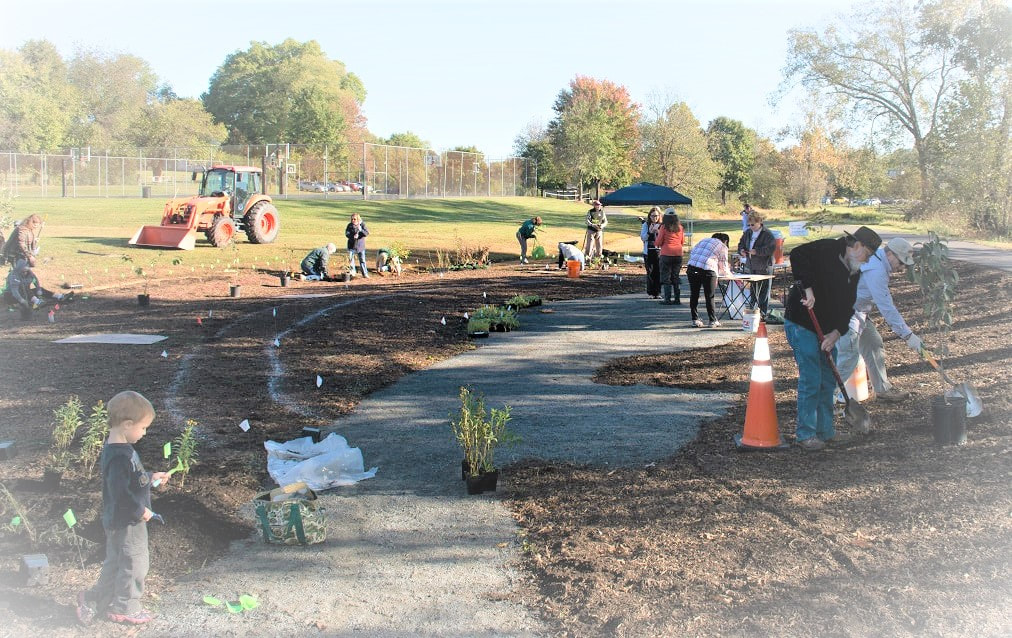
 RSS Feed
RSS Feed